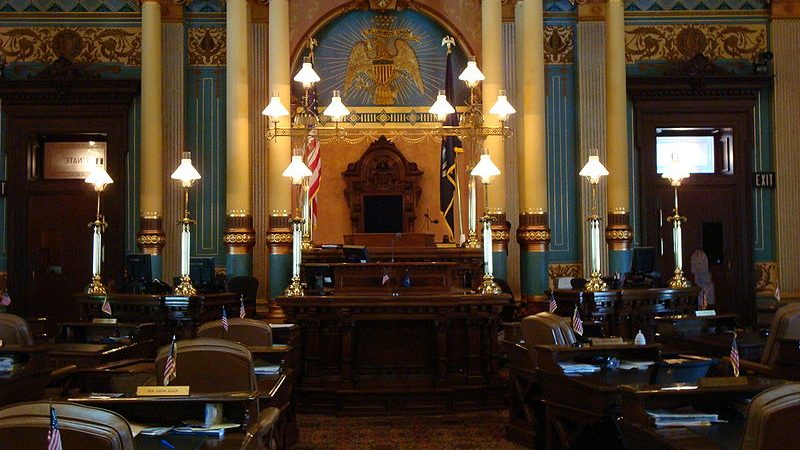Could Voters End Gerrymandering in Michigan?
What will SCOTUS’s decision on redistricting mean for Michigan voters?

Stephen Henderson talks with Jocelyn Benson, Dean of Wayne State Law School, about SCOTUS’s recent decision that popular ballot initiatives can affect redistricting. They talk about partisan districting in Michigan, and what this decision could mean for voters.
- Primary elections: Benson says that because districts are heavily partisan, party primaries have become the most important part of the election process. Because of this, elections happen within the parties, and candidates do not reflect the more moderate reality of Michigan voters. Benson says more Michigan voters are moderate or Democrats, but the Michigan legislature is more Republican.
- Incumbent interests: Benson says that change will not come from within the legislature because politicians are interested in preserving their own power and protecting incumbent seats.
- Role of technology: A caller says that districts should be drawn by computer as much as possible to reduce human error and bias. Benson says that technology can reduce bias, but believes that human judgment is still necessary to make the final call.
- Voter initiative: Stephen asks if there is any plan for a voter initiative to draw unbiased district lines in Michigan by 2016, when the next redistricting will happen. Brighton says that the League of Women Voters is an organization that people should look into for this, and urges voters to make this push in time.
- Constitutional change: A caller points out that the legislature could pass a law to make district lines referendum-proof, and asks if there is a way to prevent this. Brighton says that there will have to be an amendment to the state constitution.
Click the audio link above to hear the full conversation.
